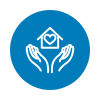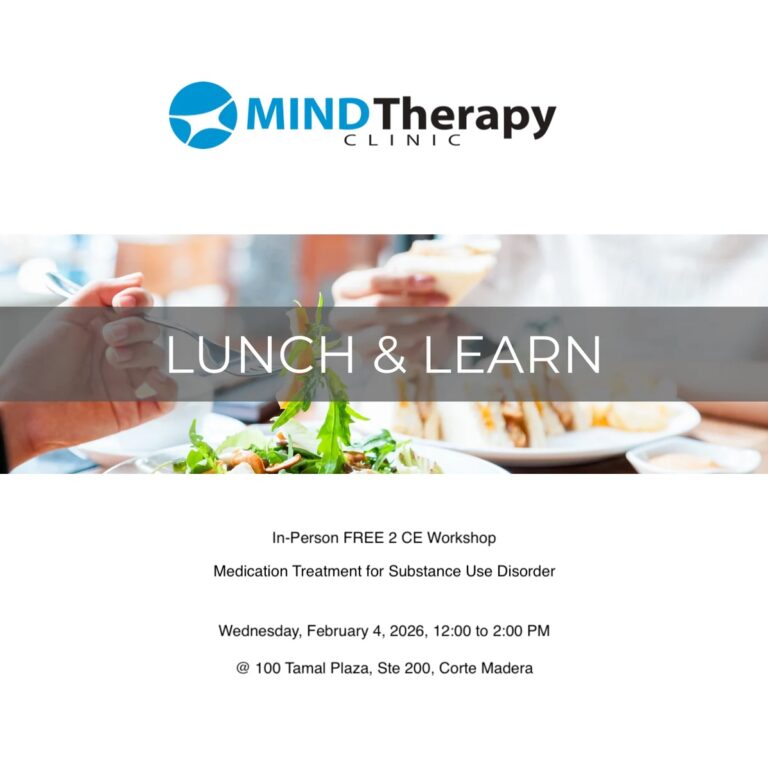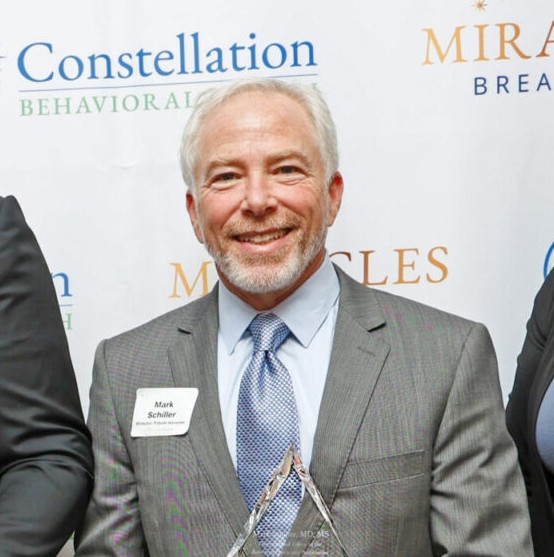Eating Disorders
Eating disorders are medical and psychological: and they’re treatable.
Eating disorders can affect health, mood, thinking, and relationships. Presentations include anorexia nervosa, bulimia nervosa, binge-eating disorder, ARFID, and OSFED. They often co-occur with anxiety, depression, OCD-spectrum concerns, trauma-related symptoms, ADHD, or substance use. Durable progress comes from an integrated, team-based plan that addresses nutrition, medical safety, and mental health together.
Not sure if you need help?
If you have:
Restricting, bingeing, or purging behaviors
Preoccupation with food, weight/shape, calories, or “rules”
Compensatory behaviors (vomiting, laxatives/diuretics, compulsive exercise)
Dizziness, fainting, cold intolerance, hair loss, GI issues, missed periods/low testosterone
Distress and avoidance that interfere with school, work, sports, or relationships
We approach eating disorders within the context of our client’s entire mental health spectrum, addressing potential coexisting conditions such as OCD, addiction, depression, and anxiety.
Our multidisciplinary approach and personalized treatment plans are crafted with clinical judgment, providing dietitians, group activities promoting healthy living, and support for co-occurring disorders. Our goal is to provide holistic care that goes beyond the surface, empowering individuals to heal. Eating disorders are complicated so it’s hard to tell if you need help.
Are you or your loved one struggling, and unsure about seeking help?
*This quiz should not be used to replace the recommendations or diagnoses provided by a medical or mental health professional. We encourage you to share your results with a mental healthcare professional who can help you determine the next steps that are right for you.
What are co-occurring disorders?
Co-occurring disorders (also called dual diagnosis) means a substance use disorder happens at the same time as one or more mental health conditions. Common combinations include depression, anxiety, PTSD/trauma, bipolar spectrum, ADHD, OCD, and personality-related difficulties. Treating only substance use – or only mental health – often leads to short-lived results. Durable recovery requires addressing both together.
–
Why integrated treatment works
- Substance use can mask or worsen mood, anxiety, and trauma symptoms.
- Mental health symptoms can trigger cravings and relapse risk.
- Coordinated care reduces handoffs, conflicting plans, and gaps that derail progress.
- Patients get one team, one plan, and consistent skills across settings.
–
How we integrate care at Mind Therapy Clinic
1) Comprehensive assessment
Psychiatry-led evaluation of substance use patterns, withdrawal risk, and mental health history; medical review and labs as needed.
2) One plan, one team
Your psychiatrist, individual therapist, family therapist, group facilitators, and case manager meet weekly to align goals and adjust care.
3) Evidence-based therapies
CBT, DBT, ACT, trauma-informed care, motivational interviewing/MI, relapse-prevention, and skills groups that apply to both conditions.
4) Medications when appropriate
Medication management for mood/anxiety/ADHD and MAT (e.g., buprenorphine, naltrexone, acamprosate) when clinically indicated.
5) Integrated family support
Education, boundaries, and coaching so home supports recovery rather than stress.
6) Step-up/step-down continuity
Seamless movement across Outpatient ↔ IOP ↔ PHP, with the same core team; option to pair IOP/PHP with 24/7 supportive living.
7) Measurement-based care
Regular symptom and functioning measures for both substance use and mental health—shared with you to track progress together.
Signs of an Eating Disorder
If you find you have any of these signs in your life, don’t hesitate to reach out to our clinic for a consultation.
- Obsessive preoccupation with body weight or shape
- Drastic weight fluctuations
- Self-induced vomiting
- Misuse of laxatives
- Isolating due to shame around eating habits
- Physical symptoms like fatigue, dizziness, hair loss, or disruptions in menstrual cycles
- Psychological distress, including depression, anxiety, or feelings of guilt and shame related to eating behaviors
Personalized Treatment

Nutrition Counseling
Certified dietitians help restore normal eating patterns and teach the importance of nutrition and a balanced diet.

Supportive Housing
A supportive group home environment may be an option for adults on their mental health wellness journey.

Psychotherapy
Through a combination of cognitive-behavioral therapy and behavioral therapy, psychotherapy helps patients develop healthier attitudes toward food and weight while equipping them with effective ways to cope with stressful situations.

Medication
Certain antidepressant medications like selective serotonin re-uptake inhibitors (SSRIs such as Prozac and Paxil) and other non-antidepressant medications might be used to help control anxiety and depression associated with an eating disorder.

Group Therapy
Our therapy groups are led by experts in their field who have dedicated their lives to helping others. People with eating disorders might benefit from group therapy, where they can find that they are not alone, openly discussing their feelings and concerns with others who share common experiences and problems.

Family Therapy
Group meetings and education are available to our clients’ partners, spouses, and children as part of our inclusive treatment strategy. Family therapy is part of an overall treatment program and is very important to success. Family members will learn more about eating disorders and recognize its signs and symptoms so they can support their loved one’s treatment.

Healthy Living Group
Along with nutrition education, you’ll learn the roles that physical activity, sleep, stress reduction, and mindfulness play in supporting the journey toward recovery and health.
Intensive Outpatient Program (IOP)
3 Day IOP
Includes:
The 3-day program includes 2 group therapy sessions per day.
One individual psychotherapy session per week (master’s level provider or higher)
Psychiatric Evaluation & Medication Management
Family Therapy (once a week)
Case management services of up to two (2) hours per month.
Adjunct Services*
*These are additional clinically indicated services that are customizable and prescribed by the treating psychiatrist.
4 Day IOP
Includes:
The 4-day program includes 2 group therapy sessions per day.
One individual psychotherapy session per week (master’s level provider or higher)
Psychiatric Evaluation & Medication Management
Family Therapy (once a week)
Case management services of up to two (2) hours per month.
Adjunct Services*
5 Day IOP
Includes:
The 5-day program includes 2 group therapy sessions per day.
One individual psychotherapy session per week (master’s level provider or higher)
Psychiatric Evaluation & Medication Management
Family Therapy (once a week)
Case management services of up to two (2) hours per month.
Adjunct Services*
Partial Hospitalization Program (PHP)
Includes:
About 3 to 4 therapy groups per day
Two individual psychotherapy sessions per week
Psychiatric evaluation & medication management
Family therapy once a week
Case management services: 30 mins to 1 hour per week
Specialized services can be arranged at an addition cost, by mutual agreement based on need
Therapy Groups
Learn about coping strategies to reduce anxiety symptoms and gain a better understanding of the thoughts, feelings, and behaviors that perpetuate anxiety—all within a caring and supportive environment.
Anxiety Therapy
Upcoming eventBuilding Strong Relationships Group
Upcoming eventCognitive Behavioral Therapy
Upcoming eventDepression and Loss Group
Upcoming eventDistress Tolerance Group
Upcoming eventEmotion Regulation Skills
Upcoming eventEmotions and Compulsions
Upcoming eventFamily and Relationship Issues
Upcoming eventGoals Group
Upcoming eventHealthy Living Group
Upcoming eventIncreasing Connection
Upcoming eventInterpersonal Effectiveness Skills
Upcoming eventLife Satisfaction Group
Upcoming eventMindful Process Group
Upcoming eventMindfulness Skills Group
Upcoming eventPost-Traumatic Growth
Upcoming eventRelapse Prevention Skills Group
Upcoming eventSelf Compassion Group
Upcoming eventSelf-Acceptance Group
Upcoming eventShining a Light on Recovery
Upcoming eventStress and Addiction Group
Upcoming eventTaking Charge Group
Upcoming eventTaming Anxiety Group for Teens
Upcoming eventThe Next Right Thing
Upcoming eventWomen’s Psychotherapy Group
Upcoming event
We’re dedicated to providing valuable information and support for anyone who is struggling with mental health issues. Our extensive options for group therapy are led by highly experienced medical professionals. Explore our informative articles to help you better understand and manage your anxiety. Our goal is to provide a safe and supportive community where you can learn, connect, and grow.






